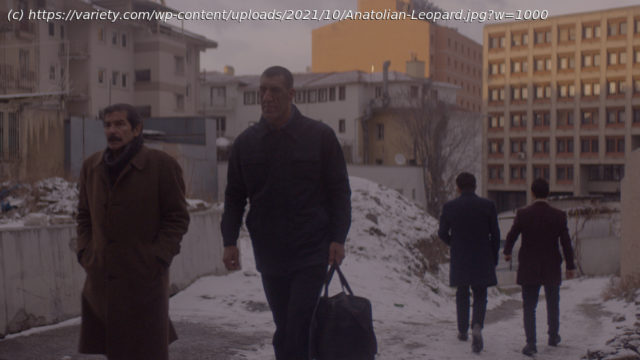Antalya Golden Orange Film Festival stands as testimony that despite the pandemic and the economy, Turkish cinema is in fine fettle.
Turkey’s Antalya Golden Orange Film Festival, which historically has always been the country’s prime local cinema catalyst, stands as testimony that despite impediments due to the pandemic and the country’s economy Turkish filmmakers are in fine fettle. “At the start of the year people said: ‘You will not be able to assemble 10 [Turkish] films due to the pandemic,’” because “they thought nothing was getting made,” says Antalya fest chief Ahmet Boyacıoğlu. Instead, programmers for the event’s upcoming 58th edition that will run Oct.2-9 in the sprawling resort city on Turkey’s Southern coast, received 44 submissions for the national competition that is at its core. And the 10 features they’ve selected rep “the strongest selection at Antalya in maybe the past 10 years,” he says. Antalya’s artistic director Başak Emre points out that with the Turkish lira hitting all-time lows against Western currencies and waning local government support for film production that now amounts to a mere roughly €200,000 ($232,000) in total, the country’s producers are increasingly resorting to co-productions with European partners to get their projects off the ground. This is reflected in the fact that six out of 10 films in Antalya’s national competition are co-productions. Some made in tandem with several European countries as is the case with first-time director Emre Kayiş’ “Anatolian Leopard,” which launched from the Toronto Film Festival’s Discovery section and is a co-production between Turkey, Poland, Germany and Denmark. The winners will be picked by a seven-member jury headed by Turkish writer-director Emin Alper (“Frenzy”). Since the 1960s Turkey’s oldest film festival has been “the Mecca of Turkish cinema,” says Boyacıoğlu, who with Emre also runs Turkey’s traveling Festival on Wheels. They took Antalya’s reins in 2019 following a spell during which the fest’s national competition had been eliminated as a separate strand, sparking protests, and even a boycott, from the local film community. Which is not to say that Antalya is now an insular event. “We still have an international competition,” which, Emre notes, is “a very important component” of their vision for the fest. This year it comprises recent global circuit standouts such as Venice Golden Lion winner “Happening,” by Audrey Diwan, as well as Mia Hansen-Løve’s “Bergman Island,” and Ryûsuke Hamaguchi’s “Drive My Car,” which were both at Cannes.
Home
United States
USA — Cinema Antalya Film Festival Bolsters Its Role as Turkish Film Industry Catalyst






